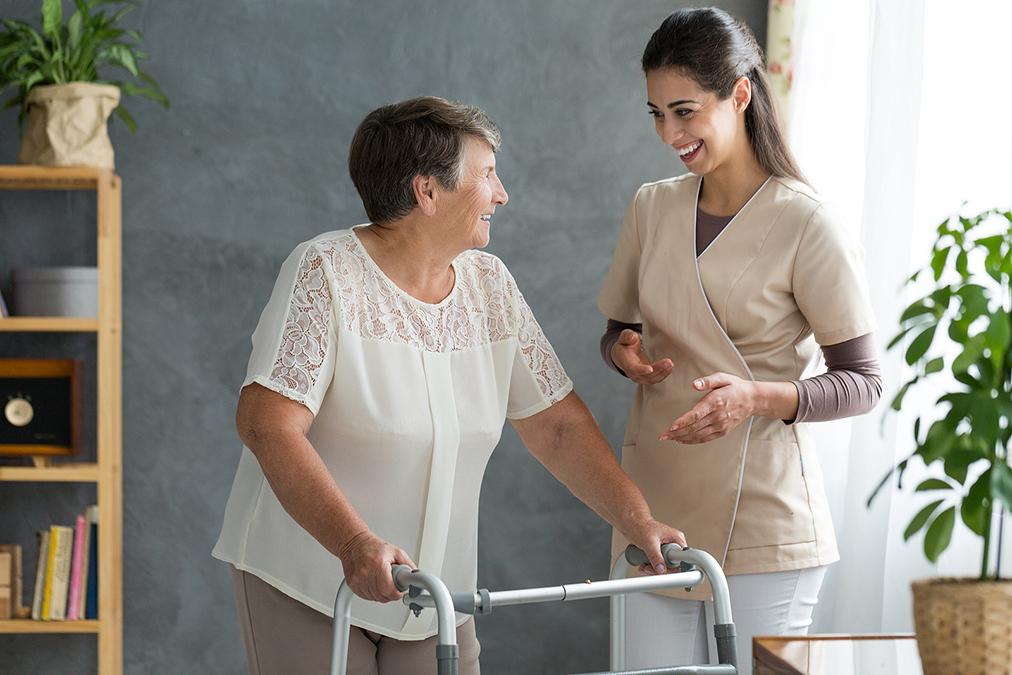 The medical system provides little help for Parkinson’s Disease. They have drugs that mask the symptoms for some, but these drugs often come with horrendous side effects.
The medical system provides little help for Parkinson’s Disease. They have drugs that mask the symptoms for some, but these drugs often come with horrendous side effects.
What’s worse, most doctors are convinced that drugs are the only option, and lifestyle changes can’t help.
But a new study just published in the journal Frontiers in Neurology reveals a natural therapy that helped 87.5% of patients improve their Parkinson’s—better than drugs and without side effects.
The authors of this study assessed the effectiveness of intense multisystem neurorehabilitation therapy on Parkinson’s patients to see if they could achieve benefits without worsening the patients’ lives in other ways.
On top of side effects, another problem with existing drug treatment that they were trying to solve is that individual Parkinson’s patients often show different responses to drug therapies, because their symptoms are different.
Accordingly, the researchers recruited 24 Parkinson’s patients who stayed at the Don Carlo Gnocchi Foundation’s hospital for an average of 44 days. During this time, they were given a barrage of physical, cognitive, occupational, and speech therapies that were tailored to each patient’s individual requirements.
This took place twice a day for at least five days a week.
Based on the tests the researchers gave them at the beginning of the program, 10 subjects were categorized as mildly to moderately disabled, while the other 14 were severely affected.
These tests were repeated at the end of the program, and the researchers found definite improvements.
- 1. Based on the Barthel Index, 87.5% of subjects improved their functional abilities and skills essential for independence, such as bladder control, walking, dressing, and getting up from a chair or bed.
2. Most subjects improved in language comprehension, abstract reasoning, and memory.
3. The majority improved their pain intensity perception.
4. When the mild-moderate patients were compared with the severely affected patients, the latter only really improved on tests that used visual cues to measure attention, planning, and memory.
This means that such a multisystem approach works, but that the size of improvements mostly depends on the patients’ level of disability at the start.
But what this study does prove is that natural approaches do help people with Parkinson’s, and you don’t have to rely on drugs. I have helped hundreds of Parkinson’s patients over the years drastically improve and hold back the progression of their disease using nothing but natural lifestyle changes explained here…

 Overcoming IBD
Overcoming IBD Multiple Sclerosis
Multiple Sclerosis Banishing Bronchitis
Banishing Bronchitis Gum Disease Gone
Gum Disease Gone Overcoming Onychomycosis
Overcoming Onychomycosis Neuropathy No More
Neuropathy No More The Prostate Protocol
The Prostate Protocol Brain Booster
Brain Booster
 Ironbound
Ironbound
 Solution for Shingles
Solution for Shingles
 The Bone Density Solution
The Bone Density Solution
 The Ultimate Healing Protocol
The Ultimate Healing Protocol
 The Parkinson's Protocol
The Parkinson's Protocol
 The Chronic Kidney Disease Solution
The Chronic Kidney Disease Solution
 Overthrowing Anxiety
Overthrowing Anxiety The Fatty Liver Solution
The Fatty Liver Solution The Hypothyroidism Solution
The Hypothyroidism Solution
 The End of Gout
The End of Gout The Blood Pressure Program
The Blood Pressure Program
 The Oxigized Cholesterol Strategy
The Oxigized Cholesterol Strategy
 Stop Snoring And Sleep Apnea Program
Stop Snoring And Sleep Apnea Program
 The Arthritis Strategy
The Arthritis Strategy The Vertigo & Dizziness Program
The Vertigo & Dizziness Program The 3-Step Diabetes Strategy
The 3-Step Diabetes Strategy Hemorrhoids Healing Protocol
Hemorrhoids Healing Protocol The Erectile Dysfunction Master
The Erectile Dysfunction Master Weight Loss Breeze
Weight Loss Breeze The IBS Program
The IBS Program The Insomnia Program
The Insomnia Program The Migraine and Headache Program
The Migraine and Headache Program The Neck Pain Solution
The Neck Pain Solution The Menopause Solution
The Menopause Solution The Ejaculation Master
The Ejaculation Master The TMJ Solution
The TMJ Solution The Acid Reflux Solution
The Acid Reflux Solution The Fibromyalgia Solution
The Fibromyalgia Solution The Psoriasis Strategy
The Psoriasis Strategy